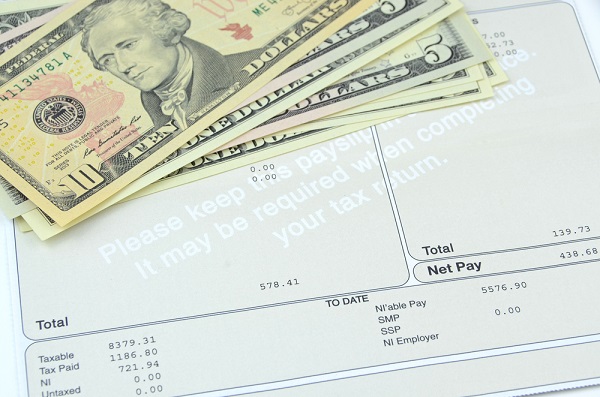 Workers alsoaren't happy with CEO pay, with 78 percent saying that most CEOsand other top execs make too much compared with employees. (Photo:Shutterstock)
Workers alsoaren't happy with CEO pay, with 78 percent saying that most CEOsand other top execs make too much compared with employees. (Photo:Shutterstock)
No matter their age or race, nearly a third of workers don'tbelieve that employees in their company are paid fairly. In fact, 34 percent say theybelieve their pay is based on managers' or supervisors' “feelings”on what they deserve to make, instead of based on performance, experience or skills.
|That's according to a study from beqom that also finds48 percent of workers believing that men are paid more than women at their company. At theindustry level, U.S. workers believe men are paid more than womenin technology (34 percent), banking and finance (23 percent),health care and medical (13 percent) and education and highereducation (5 percent)—regardless of equal skill, performance andexperience.
|Related: The growing complexity of compensationstrategies
|So, not surprisingly, the study finds that workers want—and arecreating—pay transparency, with 45 percent of workers admittingthey know what their colleagues make and 46 percent admitting thatthey've talked about their salary with colleagues. Still, oldhabits die hard; younger workers are more likely to talk salarywith coworkers than older ones, with 56 percent of millennialssaying they'd share their salary details with colleagues comparedwith just 27 percent of boomers.
|And awkward as those money conversations might be, 66 percent ofworkers would rather that colleagues know their salary than haveeven more awkward conversations: details of their sex life (20percent), for example.
|Workers also aren't happy with CEO pay, with 78 percent sayingthat most CEOs and other top execs make too much compared with employeesand 60 percent wanting to know just how much those salaries amountto. While 28 percent say that latter desire is in the name oftransparency, 21 percent said it would serve as motivation and 11percent say it's because they want to know just how wide that paygap is.
|All that said, they don't want to talk about it with theirmanagers. Only 19 percent say they'd be comfortable discussingtheir salary with their manager or supervisor, and 20 percent saythey wouldn't ask for a raise even if they knew a colleague withcomparable skills and experience was making more than theywere.
|In addition, although 54 percent say they don't plan on askingfor a raise or additional benefits before the end of the year, thatdoesn't mean they don't want more money. In fact, 29 percent areplanning to jump ship within the year because they're not happywith their salary and compensation.
|What else is influencing salaryperceptions?
Complete your profile to continue reading and get FREE access to BenefitsPRO, part of your ALM digital membership.
Your access to unlimited BenefitsPRO content isn’t changing.
Once you are an ALM digital member, you’ll receive:
- Critical BenefitsPRO information including cutting edge post-reform success strategies, access to educational webcasts and videos, resources from industry leaders, and informative Newsletters.
- Exclusive discounts on ALM, BenefitsPRO magazine and BenefitsPRO.com events
- Access to other award-winning ALM websites including ThinkAdvisor.com and Law.com
Already have an account? Sign In
© 2024 ALM Global, LLC, All Rights Reserved. Request academic re-use from www.copyright.com. All other uses, submit a request to [email protected]. For more information visit Asset & Logo Licensing.








